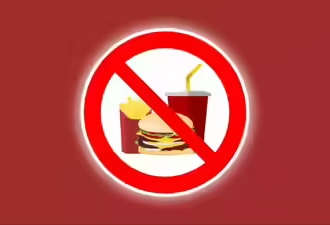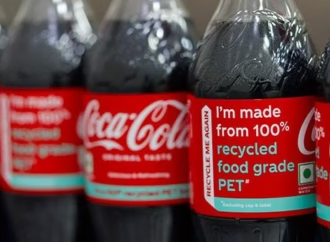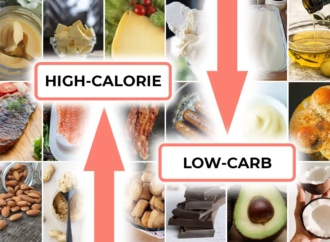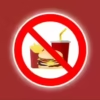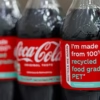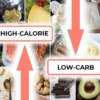We’ve all been there — standing in front of the fridge or pantry, staring at a packet or leftovers with a questionable expiry date. The big question hits: “Is this still safe to eat?” Reducing food waste is important, and nobody wants to toss good food unnecessarily. So, it’s tempting to trust your nose or eyeball the food and take a chance. But when it comes to expired and spoiled food, myths and misunderstandings can lead us into trouble — even serious health risks. Let’s take a closer look at some of the most common myths around expired and spoiled food, and get real about what these dates and signs actually mean. Once you know the facts, you’ll make smarter, safer decisions for yourself and your family.
Common Myths About Expired and Spoiled Food
Many people misunderstand expiry date and spoilage, leading to risky food choices. Let’s clear up some common myths to keep you safe.
Myth 1: “If It Smells Fine, It’s Safe to Eat”
One of the biggest myths is that your nose can protect you from eating bad food. But that’s not always true. Some dangerous bacteria and toxins don’t affect the smell, taste, or appearance of food. For example, Listeria and Salmonella can be present without any obvious signs, yet they can cause serious food poisoning. So, just because something smells okay doesn’t mean it’s safe. Always check the expiry date and storage instructions first, and when in doubt — throw it out.
Myth 2: “Expiry Dates Are Just Suggestions”
It’s easy to think that expiry dates are loose guidelines rather than strict rules. But actually, food labels have different kinds of dates for different reasons:
- “Use by” dates are about safety. You shouldn’t eat food past this date.
- “Best before” dates indicate quality. The food might lose flavor or texture after this date but could still be safe to consume.
- “Sell by” dates guide retailers on stock rotation but don’t tell you when the food becomes unsafe.
Ignoring “use by” dates on high-risk foods like dairy, seafood, and meat can cause foodborne illnesses.
Myth 3: “Freezing Food Kills Bacteria”
Many people believe freezing food kills all bacteria. The truth? Freezing stops bacteria from growing but doesn’t kill them. If the food was contaminated before freezing, thawing it can still cause food poisoning. That’s why it’s crucial to freeze food promptly, store it properly, and consume it within recommended times after thawing.
Myth 4: “Spoiled Food Only Causes Mild Stomach Aches”
Food poisoning isn’t always just a mild discomfort. Symptoms like nausea, vomiting, diarrhea, stomach cramps, and fever can vary in severity. For vulnerable groups — including children, pregnant women, older adults, and people with weakened immune systems — foodborne illnesses can become very serious or even life-threatening. Taking risks with expired or spoiled food isn’t worth putting your or your loved ones’ health in jeopardy.
Why Do People Take Risks with Expired Food?
Despite the dangers, many people still eat expired or spoiled food. Here’s why:
- Avoiding waste: Throwing away food feels like wasting money and resources.
- Lack of understanding: Many don’t know what expiry date actually mean.
- Poor storage: Improper refrigeration or sealing speeds up spoilage.
- Forgetting leftovers: Out of sight often means out of mind, until it’s too late.
- Relying on senses: People trust looks or smell over actual safety.
These situations are common, especially in busy homes or small food businesses.
What Foods Should You Watch Closely?
Some foods spoil faster and carry higher risks when expired:
- Dairy products like milk, cheese, and yogurt spoil quickly.
- Cooked leftovers should be eaten within 2–3 days.
- Seafood and meat are high-risk and should never be consumed past expiry.
- Bread and baked goods can grow mold, and some molds produce harmful toxins.
- Canned foods with swollen, rusted, or leaking cans should always be discarded.
When in doubt about any food — especially if the smell, color, or texture looks off — it’s safer to throw it away.
How to Stay Safe and Reduce Waste
Good news: you can protect yourself and your family from spoiled food without throwing away too much. Here are some simple habits to help you balance safety and food waste

- Plan your shopping: Buy only what you need to avoid overstocking.
- Practice FIFO: Use the “First In, First Out” method to consume older items first.
- Label leftovers: Mark the date you cooked or opened foods on containers.
- Store properly: Keep perishables refrigerated at the right temperature and seal dry goods.
- Freeze wisely: Freeze leftovers promptly and use them within safe periods.
- Educate your household: Teach family members about expiry date and safe food handling.
When in Doubt, Throw It Out
At the end of the day, your health is worth more than a bit of food. Even if it seems wasteful, tossing expired or suspicious food is a wise choice — not just for your well-being but to avoid costly medical bills or serious illness. Food should nourish, not harm. Taking a little extra care to check expiry date, trust your senses wisely, and store food safely can protect you and your loved ones from foodborne illness. So next time you reach for that forgotten pack or questionable leftovers, pause. Check the date, look carefully, sniff cautiously, and when you’re unsure — don’t risk it. Toss it. Your health comes first.
 Food Manifest
Food Manifest 
